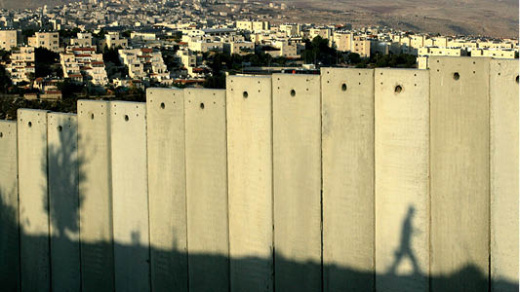- About
- News
-
Advocacy
- Accountability & Litigation
- International Advocacy
- National Advocacy
- Capacity Building
- Documentation
- FAI Unit
- Al-Haq Publications
- Library


- About
- News
-
Advocacy
- Accountability & Litigation
- International Advocacy
- National Advocacy
- Capacity Building
- Documentation
- FAI Unit
- Al-Haq Publications
- Library

International Conference on the ICJ Wall Opinion Revisited:
Towards its Effective Implementation
 On the occasion of the tenth anniversary of the Advisory Opinion on the Legal Consequences of the Construction of a Wall in the Occupied Palestinian Territory delivered by the International Court of Justice on 9 July 2004, Al-Haq’s General Director participated in an international conference on the implementation of the Court’s opinion. The conference, entitled‘The ICJ’s Wall Opinion Revisited: Towards its Effective Implementation’, examined the impact of the Annexation Wall on the rights of the occupied Palestinian people. In particular, attention was given to the impact of the Annexation Wall on the Palestinian right to self-determination, including the right to freely dispose of their own natural resources, freedom of movement, and the prohibition against forcible transfer and displacement.
On the occasion of the tenth anniversary of the Advisory Opinion on the Legal Consequences of the Construction of a Wall in the Occupied Palestinian Territory delivered by the International Court of Justice on 9 July 2004, Al-Haq’s General Director participated in an international conference on the implementation of the Court’s opinion. The conference, entitled‘The ICJ’s Wall Opinion Revisited: Towards its Effective Implementation’, examined the impact of the Annexation Wall on the rights of the occupied Palestinian people. In particular, attention was given to the impact of the Annexation Wall on the Palestinian right to self-determination, including the right to freely dispose of their own natural resources, freedom of movement, and the prohibition against forcible transfer and displacement.
The participants also discussed the Israeli response to the Advisory Opinion, including how the Israeli legal arm has translated the findings of the International Court of Justice. Further, the conference focused on the role of third states parties and the United Nations in enforcing the Opinion and ensuring that Israeli violations arising from the construction of the Annexation Wall on occupied land are brought to an end.
During Mr. Shawan Jabarin’s presentation, a clear link was made between the construction of the Wall and the illegal Israeli settlement enterprise. In doing so, Mr. Jabarin exposed the Israeli larger agenda behind the Annexation Wall; to further annex and consolide Israeli control over Palestinian land, in specific over East Jerusalem and Area C of the West Bank, while emptying the same land of Palestinians. Mr. Jabarin, quoting the International Court of Justice, provided that“the Wall’s sinuous route has been traced in such a way as to include within that area the great majority of the Israeli settlement in the occupied Palestinian territory (including East Jerusalem)”. At this stage, approximately 520.000 settlers reside inside Palestine.
During the conference Mr. Jabarin concluded that Israel never intended to comply with the findings of the Court.Indeed, as of 2013, Israel has completed the construction of 62 per cent of the 712 kilometres planned Wall. Upon completion, the Annexation Wall will be twice as long as the Green Line and it is estimated that 85 per cent of it will be built inside the Palestinian Territory. In effect, the Annexation Wall will isolate 9.4 per cent of the West Bank, including East Jerusalem, from the rest of Palestine.
Therefore, Mr. Jabarin urged the participants to address all actors involved in furthering the Israeli occupation and colonisation of Palestine. It has become increasingly evident that one of the main reasons for the perpetuation of Israeli violations, including the construction of the Annexation Wall on Palestinian land and the illegal transfer of settlers into the occupied territory, are that of business interest and benefits reaped from the prolonged occupation.
Al-Haq underlines the importance of the Advisory Opinion as an authoritative legal document delivered by the principal judicial organ of the United Nations and calls on all parties to abide by its findings. In particular, Al-Haq emphasises the finding of the Court that Palestinians have the inherent right as a people to exercise self-determination in the Occupied Palestinian Territory, including East Jerusalem and the Gaza Strip. In addition, Al-Haq echoes the Court’s enumeration of obligations on third states parties, including the obligation:
- not to recognise the illegal situation resulting from the construction of the Annexation Wall;
- not to provide aid or assistance in maintaining the situation created by its construction;
Furthermore, the Court provided that the High Contracting Parties to the Geneva Conventions have the obligation under Common Article 1 to ensure respect for the same Conventions.
Al-Haq further calls on Israel to immediately comply with the findings of the Court, including to:
- cease the construction of the Annexation Wall and dismantle sections built to date;
- undo all legislative and regulatory acts related to the construction of the Annexation Wall;
- provide reparations for all damage caused by the construction of the Annexation Wall in the occupied territory.
For further information on the Annexation Wall, please see:
- Al-Haq publication 'The Annexation Wall and its Association Regime'
- Al-Haq Wall Campaign 10 Years Too Long